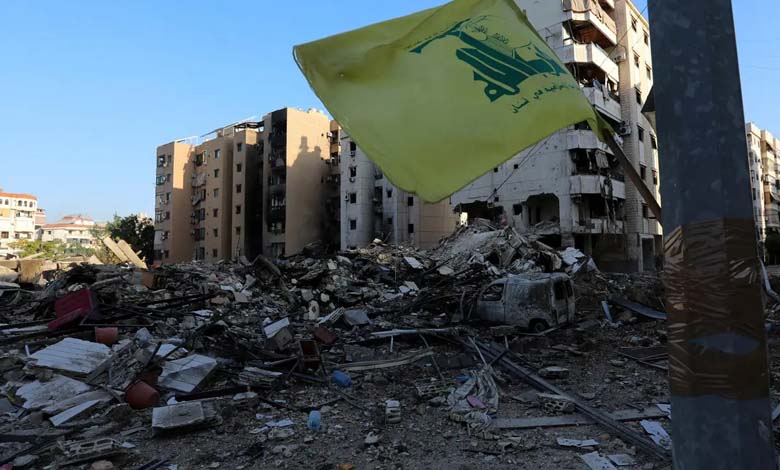Following Approval from Iran and Israel: Ceasefire Negotiations in Lebanon Enter Final Stages

Official sources have revealed that the Israeli government will vote on Tuesday on a ceasefire agreement in Lebanon after Israeli Prime Minister Benjamin Netanyahu gave his approval “in principle” to the plan. Iran has also agreed to the plan and informed Hezbollah of the need to end the war, according to the American network CNN.
-
Israel Threatens Hezbollah Leaders: Defeating the Party with the Weapon of “Chaos”
-
After his death… Who is Salim Ayyash, Hezbollah member convicted of killing Rafic Hariri?
Israeli Approval
According to a well-informed source, Netanyahu expressed his preliminary approval of the emerging agreement with Hezbollah during security consultations with Israeli officials on Sunday evening.
Netanyahu‘s spokesperson confirmed that the Israeli government would vote on the proposal, and the vote is expected to pass the agreement.
The American network highlighted that while negotiations are progressing towards an agreement, sources warned that ongoing tensions between Israel and Hezbollah could derail the talks if any escalation occurs.
-
Report: Houthis Violate Childhood in Summer Camps and Hezbollah Interferes with School Curricula
-
Does Hezbollah’s Defeat Mark the End of the Iranian Era?
A Lebanese official involved in the discussions stated that the announcement of a ceasefire could take place within “24 hours.”
The news received mixed reactions within Israel. Itamar Ben Gvir, the far-right Minister of National Security, called the agreement a “grave mistake,” claiming it represented a “missed historic opportunity to eliminate Hezbollah.”
On the other hand, Benny Gantz, who resigned from the war cabinet in June, called for the details of the agreement to be disclosed to the Israeli public, saying: “The residents of the north, the fighters, and the citizens have the right to know.”
-
“Sleeping Cells” in Europe and America: Hezbollah’s “Specter” of Retaliation against Israel
-
Hezbollah and the Death of Nasrallah… the End of an Era?
Concerns on Both Sides of the Border
Residents of northern Israel, many of whom were forced to evacuate due to the conflict, expressed concern over the pending agreement.
Nizan Zevi, a resident of the village of Kfar Kela, north of Kiryat Shmona, voiced fears that the agreement could allow Hezbollah to reposition its forces near the border, potentially endangering his family’s security.
US envoy Amos Hochstein, who visited Beirut last week, stated that a ceasefire agreement between Israel and Lebanon is “within reach,” but emphasized that the final decision depends on the conflicting parties.
-
Netanyahu reveals Hezbollah’s plan to invade northern Israel
-
Israel’s Attempt to Break ‘Al-Qard Al-Hassan’: Cutting Hezbollah’s Financial Channels
Hochstein held discussions he described as “constructive” with Lebanese Prime Minister Najib Mikati and Parliament Speaker Nabih Berri, expressing hope that his efforts would help bring an end to the ongoing conflict.
Israeli Preparations and Conflict Background
As the vote approaches, Israel’s Home Front Command issued warnings of a potential escalation in rocket attacks from Hezbollah and updated defense guidelines for northern regions.
-
Tense Atmosphere in Beirut Due to Displaced People from Hezbollah Strongholds
-
Hezbollah relies on new leadership whose members are unknown to Israel
Israel launched a large-scale military offensive in Lebanon in mid-September after months of sporadic border clashes ignited by Hezbollah‘s attack on Israeli-controlled territories in solidarity with Palestinians in Gaza.
The Israeli operations included a ground offensive and the elimination of several Hezbollah leaders, including Hassan Nasrallah, one of the movement’s founders.












